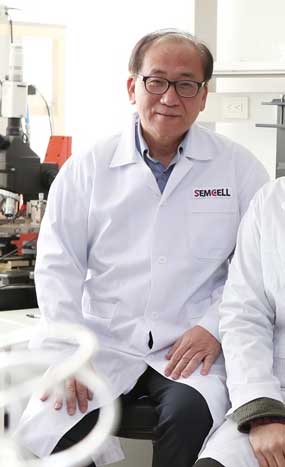A research team at the Korea Advanced Institute of Science and Technology (KAIST), led by Professor Cho Young-ho, has developed a porous polymer flexible material with a moisture repellency that exceeds the amount of sweat generated in the skin.

The team expects the highly moisture-repellent flexible material can work as a skin patch for bio-signal monitoring as existing skin-attached flexible materials could not evaporate all of the sweat generated from the skin, causing rash or redness.
The material and its manufacturing process technology uniformly formed microspores in the polymer material to increase moisture permeability.
The team confirmed a moisture permeability of 770g/m², which is 1.8 times higher than the skin sweating rate of 432g/m².
"By using this material, it became possible to develop a skin-attached patch that patients can wear at all times," KAIST said in a news release.
The team also resolved other disadvantages in conventional products.
"In the existing porous polymer, companies had to mix sugar into solid particles and dissolve them in a solution to form voids," it said. “Such a process made it was impossible to make identical solid particle size, evenly distribute them, or form a thin film."
However, the team's porous polymer flexible material reduced the pore size to one-fifteenth compared to the conventional products and doubled the size uniformity. The team could manufacture the material into thin films with a thickness between 21 to 300 micrometers by applying a spin coating method.
"This study provided an opportunity to increase the wearing time of skin-attached wearable devices." Professor Cho said. "The research team is developing a band-aid type emotion measurement patch, which can be worn by patients at all times by integrating a sensor that can measure human biological signals on a thin film of highly moisture-repellent flexible material."
Scientific Reports has published the results of the study.

